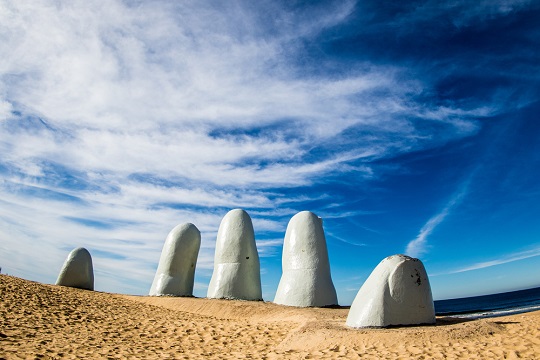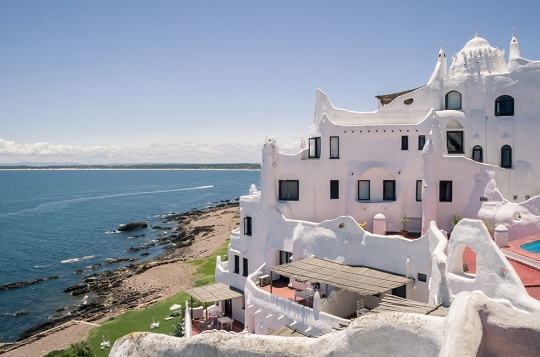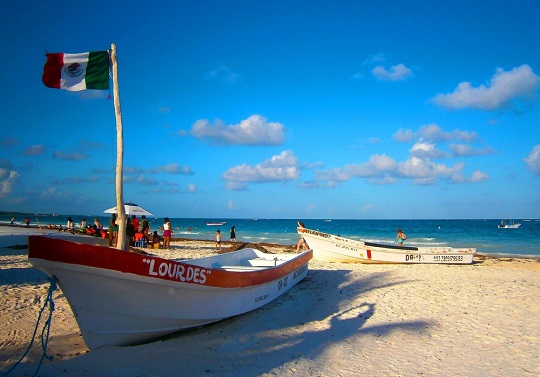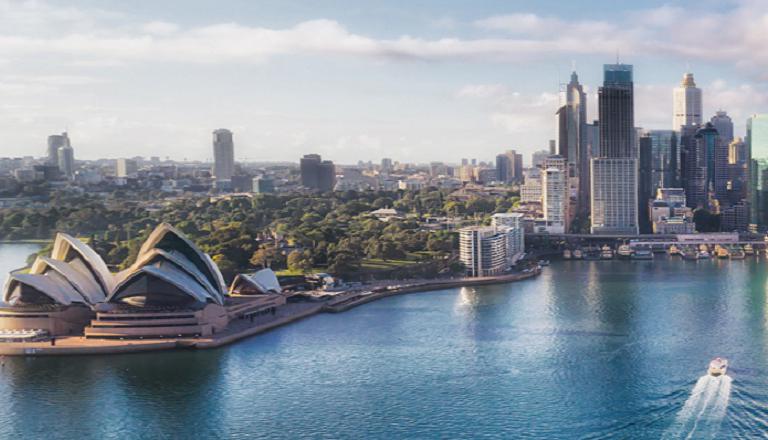If you’re like most Canadians, you dream of getting away to sunnier climes during our cold, harsh winter. But have you considered exporting your business to a warmer country to enjoy year-round travel?
You can chill in the -50C Antarctica market if you like, but I checked the Global Affairs Canada website and there’s very little trade activity going on there. Even though scientists recently discovered a colony of 1.5 million penguins, it turns out the frugal little flappers aren’t buying anything from Canadian companies. (At those temperatures, perhaps their budgets are frozen.)
Let’s face it: Selling internationally isn’t just about profits and making your company more competitive, innovative and robust. It’s also about living the adventure and exploring new countries to gauge their potential for your company’s growth. So, if you’re looking to break into new markets, why not check out tropical destinations?
As luck would have it, Export Development Canada (EDC) has identified several that offer significant opportunities for Canadian companies of all sizes, and it just so happens, they’re drenched in sunshine with turquoise seas lapping on sugar-sand beaches. So, what are you waiting for? Here are four hot markets worth considering:
Chile

Ease of doing business*: 38
Overall risk: Low
Capital: Santiago
Typical temperature: 28 to 30C (varies by region)
*Ease of doing business is an annual ranking of 190 countries provided by the World Bank Group. The lower the number, the more conducive the regulatory environment to starting and operating a firm.
Key attractions
Take one look at a map of Chile—the long, narrow South American country with a Pacific Ocean coastline stretching more than 6,000 kilometres down the continent—and you know life’s a beach here. But sand and surf aren’t all that Chile has to offer. The length of the country means Chile passes through several different types of terrain. From the capital of Santiago (where EDC has representatives on the ground to help you), you can literally travel just 90 minutes in the morning to go downhill skiing or snowboarding and be back to lounge on the beach or poolside in the afternoon.
Trade insights
Simply put, Chile loves imports. Its economy is highly dependent on international trade, which accounts for more than 60% of its GDP. It has an open trade policy, is considered to be one of the most liberal investment regimes in the world, and typically enjoys regulatory, political and economic stability.
Another plus: Two free trade agreements, the Canada-Chile FTA and the more recent Comprehensive and Progressive Agreement for Trans-Pacific Partnership (CPTPP), will roll out the welcome mat for your Canadian products and services. Canada has a well-established trade and investment relationship with Chile and EDC has helped more than 600 Canadian companies do business in the market. Sectors ripe with opportunities for Canadian companies include:
- Construction and infrastructure
- Environmental infrastructure and waste water
- Forestry (lumber, pulp and paper)
- Mining and metals
- Power
Business tip
Relationships are important when doing business in Chile. When making the initial contact, choosing a local representative who can leverage existing relationships is highly recommended.
Want to learn more?
Check out EDC’s market information for Chile, what Canadian companies need to know about Chile’s energy sector, or speak to an EDC Trade Advisor at 1-888-220-0047.
Uruguay

Ease of doing business: 58
Overall risk: Low to medium
Capital: Montevideo
Typical temperature: 26C
Key attractions
Across from Chile on the other side of South America is Uruguay, a name that means “river of the colourful birds” in Spanish. Described as one of the continent’s best-kept secrets, Uruguay is just coming into its own as a tourist destination. You’ll find almost 200 km of unspoiled oceanfront to explore, ranging from rugged and rocky to smooth, sandy beaches. Along the way, there are charming bohemian fishing villages, eclectic roadside markets, intriguing specialty museums and historic architecture.
Don’t be fooled into thinking that Uruguay’s less-touristy pristineness means you’ll have to rough it, though. Uruguay has a growing number of luxurious resorts, especially in Montevideo. And in Punta del Este, don’t be surprised if you spot a few members of the rich and famous peeking out from behind their sunglasses in one of the small city’s glitzy resorts or exclusive nightclubs.
Trade insights
With trade representing about half of its GDP, Uruguay is open for international business. The country’s economic growth was a respectable 3.3% in 2018, and the emerging market’s attractiveness is enhanced by a stable economic and political environment, as well as strong bank supervision.
As a member of Mercosur (an economic bloc comprising Argentina, Brazil, Paraguay, Uruguay, and Venezuela), Uruguay already has strong trade relations with its neighbours, but it’s looking to expand and diversify into new markets. That includes Canada, and exploratory discussions to forge a free trade agreement between our nation and the Mercosur bloc were recently concluded in 2018. With a combined population of 260 million and a GDP of more than $3 trillion, a Canada-Mercosur FTA would be expected to provide opportunities across a broad number of sectors and services.
Business tip
Relationships in Uruguay can be just as important as quality or price. It’s a good idea to hire a respected local representative on the ground to help forge connections with potential customers.
Want to learn more?
Find out why Uruguay is one of 10 countries to explore to diversify your markets or speak to an EDC Trade Advisor at 1-888-220-0047.
Australia

Ease of doing business: 18
Risk rating: Low
Capital: Canberra
Typical temperature: 27C in Sydney (varies by region)
Key attractions
An island continent surrounded by the Indian and Pacific oceans, you’re never far from sun-kissed beaches in Australia’s larger cities—Sydney, Brisbane, Melbourne, Perth, and Adelaide. And while the capital, Canberra, is inland, you can still bask in historic parliamentary architecture, world-class museums, and the national botanical gardens, or take a hike up Mount Ainslie to get a breathtaking view of the city. Daytrips abound, including a two-hour drive to the snow-capped Snowy Mountains, offering plenty of outdoor activities year-round.
Across Australia, you can explore the unique attractions the “Land Down Under” is famous for, like the Sydney Opera House, the Great Barrier Reef, the Outback, and the country’s rainforests, as well as the chance to observe kangaroos, koalas and duck-billed platypuses in their natural habitat. Drink it all in—then head back to your hotel to enjoy one of Australia’s lovely Shiraz wines.
Trade insights
Because of its small domestic market, Australia is highly motivated to engage in international trade with Canada and other nations and has built a strong business environment with well-established legal and regulatory regimes. The country buys about $1.8 billion worth of Canadian merchandise every year, and the Comprehensive and Progressive Trans-Pacific Partnership further strengthens the trade relationship.
Canadian goods and services that would dovetail perfectly in a variety of Australian sectors:
- Technology
- Agriculture
- Renewable energy
- Construction and infrastructure
- Environmental infrastructure and waste water
- Forestry (lumber, and pulp and paper)
- Mining and metals
- Oil and gas
With the opening of a new office in Sydney, EDC is ready and waiting to help Canadian companies explore partnerships in both Australia and other Asia-Pacific markets.
Business tip
You’ll be expected to say what you think during decision-making meetings, but don’t try to hard-sell Australians. They’ll balk at this approach.
Want to learn more?
Look for EDC’s free webinar about selling to Australia, coming up in April, 2019, and read more about the market here.
Mexico

Ease of doing business: 23
Overall risk: 29 low to medium
Capital: Mexico City
Typical temperature: 25C (varies by region)
Key attractions
Flanked by the Pacific Ocean and the Gulf of Mexico, this large and diverse market is famous for its pristine white-sand beaches, aquamarine seas, and a lush landscape of mountains, jungles and deserts. Beach resorts abound, boasting some of the best snorkeling on the continent, but you’ll want to take some side trips, as well. History is rich here, and ancient ruins, like Teotihuacán and Chichén Itzá, are listed as must-see destinations on bucket lists around the world.
The capital of Mexico City is equally breathtaking, at an altitude of 2,200 metres and surrounded by snow-capped mountain ranges. While the size of Mexico City can seem daunting, you’ll find some of the best museums and historic tourist attractions, not to mention world-class shops, restaurants and entertainment.
Trade insights
As one of Canada’s longtime trading partners, Mexico welcomes Canadian goods and services to a market that’s known for its stability, competitive labour force, and growing consumer class.
Due to Mexico’s openness to free trade and its many signed trade agreements, Canadian businesses dealing with Mexico can also gain access to more than 45 other markets across the world. Plus, the new Canada-United States-Mexico Agreement is expected to further strengthen our trade ties and increase support to Canadian firms wanting to diversify their international sales.
Under the former president, Peña Nieto, Mexico’s government introduced major reforms to spur economic growth. These changes are expected to open up access to transmission and distribution systems and permit private investment in the oil and gas sector. Other sectors that can shine in the sunny Mexican market include:
- Aerospace
- Automotive
- Construction and infrastructure
- Mining and metals
- Oil and gas
- Plastics and chemicals
- Power
- Telecom
Business tip
Mexican business people try to avoid overt disagreements. Instead of saying no, they might say maybe or we’ll get back to you. Be careful not to misinterpret their level of interest.
Remember to conduct your due diligence and check all travel advisories as you make your plans. Bon voyage!






